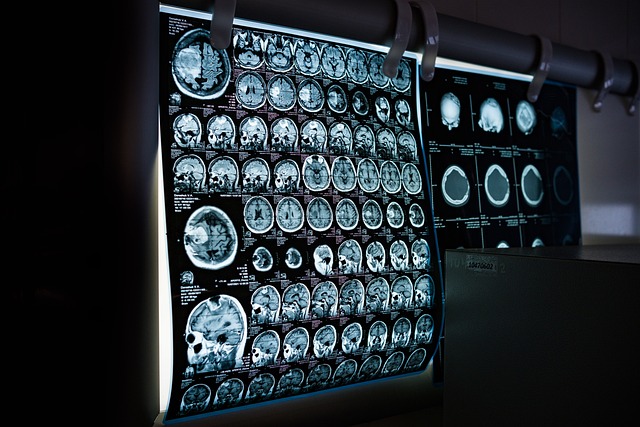Exploring the Role of Genetic Testing in Cancer Risk Assessment
Genetic testing is revolutionizing cancer risk assessment. Discover how these tests can provide insights into your genetic predisposition to cancer and empower proactive health decisions. Dive into the science behind genetic testing and its implications for personalized cancer prevention strategies.

Understanding Genetic Testing for Cancer Risk
Genetic testing examines DNA for specific changes or mutations that may increase cancer risk. These tests typically analyze blood or saliva samples to identify inherited genetic mutations that might predispose an individual to certain types of cancer. The most commonly tested genes include BRCA1 and BRCA2 (associated with breast and ovarian cancers), MLH1, MSH2, MSH6, and PMS2 (linked to Lynch syndrome and colorectal cancer), and TP53 (connected to Li-Fraumeni syndrome). The testing process involves DNA sequencing to detect mutations that may have been passed down through generations, potentially affecting cancer susceptibility.
The Science Behind Cancer Risk Assessment
Cancer risk assessment combines genetic testing results with other factors to create a comprehensive picture of an individual’s cancer risk profile. While genetic predisposition is significant, cancer development typically requires multiple factors. Risk assessment models incorporate family history, environmental exposures, lifestyle factors, and hormonal influences alongside genetic test results. For instance, the Gail Model for breast cancer risk considers factors like age, family history, and reproductive history in addition to genetic markers. This multifaceted approach provides a more nuanced understanding of cancer risk than genetic testing alone, allowing for personalized risk stratification.
Personalized Medicine and Tailored Prevention Strategies
The integration of genetic testing into cancer care exemplifies the promise of personalized medicine. When genetic testing reveals specific mutations, healthcare providers can design tailored surveillance and prevention strategies. For individuals with BRCA mutations, these might include more frequent breast imaging starting at a younger age, consideration of risk-reducing surgeries, or chemoprevention options like tamoxifen. Similarly, those with Lynch syndrome mutations might benefit from colonoscopies beginning at age 20-25, rather than the standard recommendation of age 45-50. This personalized approach ensures that preventive measures match the specific genetic risks an individual faces.
Genetic Predisposition: Beyond Cancer Detection
Understanding genetic predisposition extends beyond simply identifying cancer risks. It provides crucial insights about potential treatment responses should cancer develop. For example, tumors in BRCA mutation carriers often respond differently to certain chemotherapies and targeted treatments like PARP inhibitors. Additionally, genetic testing results can influence reproductive decisions, as some individuals may opt for preimplantation genetic testing to prevent passing mutations to offspring. The psychological impact is also significant—knowledge of genetic status allows individuals to make informed decisions about their health while potentially alleviating uncertainty about unexplained family cancer patterns.
The Evolving Landscape of Cancer Prevention Through Genetics
Cancer prevention strategies continue to evolve as our understanding of genetic factors improves. Modern panel testing can simultaneously analyze dozens of genes associated with cancer risk, providing more comprehensive risk assessments than ever before. Population-based testing approaches are being explored in some regions to identify at-risk individuals who might not meet traditional testing criteria based on family history alone. Meanwhile, advances in epigenetics—the study of how behaviors and environment affect gene expression—are adding new dimensions to our understanding of cancer risk beyond inherited mutations.
Accessing Genetic Testing Services: Providers and Costs
Genetic testing services for cancer risk assessment are available through various providers, though accessibility varies significantly in terms of cost and insurance coverage. Understanding the financial aspects is crucial for individuals considering these potentially life-saving tests.
| Provider Type | Average Cost Range | Insurance Coverage | Additional Services |
|---|---|---|---|
| Hospital Systems | $1,000-$5,000 | Often covered with prior authorization | In-person genetic counseling |
| Commercial Labs (e.g., Myriad, Ambry) | $1,500-$4,000 | Variable coverage | Remote genetic counseling |
| Direct-to-Consumer Testing (23andMe) | $199-$299 | Rarely covered | Limited cancer gene analysis |
| Academic Medical Centers | $1,000-$3,500 | Often covered for high-risk patients | Research opportunities |
| Nonprofit Programs | $250-$500 | N/A (subsidized testing) | Support groups, education |
Prices, rates, or cost estimates mentioned in this article are based on the latest available information but may change over time. Independent research is advised before making financial decisions.
The Future of Genetic Testing in Cancer Management
The future of genetic testing in cancer risk assessment appears promising with several emerging technologies set to enhance its precision and accessibility. Liquid biopsies—blood tests that can detect circulating tumor DNA—may eventually complement traditional genetic testing to monitor cancer development in high-risk individuals. Artificial intelligence algorithms are increasingly being applied to genetic data interpretation, potentially improving risk predictions. As costs decrease and testing becomes more mainstream, population-level screening may become feasible, identifying at-risk individuals who would not traditionally meet testing criteria. However, these advances must be balanced with ethical considerations around privacy, potential discrimination, and the psychological impact of risk information.
Genetic testing has fundamentally changed our approach to cancer risk assessment, moving from reactive treatment to proactive prevention. By identifying individuals at elevated genetic risk, these tests enable personalized prevention strategies that may ultimately reduce cancer incidence and mortality. As technology advances and testing becomes more accessible, genetic information will continue to play an increasingly vital role in comprehensive cancer care strategies.
This article is for informational purposes only and should not be considered medical advice. Please consult a qualified healthcare professional for personalized guidance and treatment.




